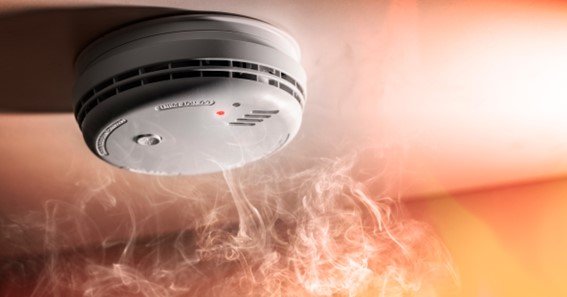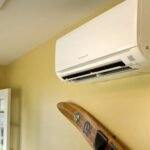Experiencing persistent beeping from your smoke detector can be both frustrating and concerning. Understanding the common causes behind this issue is essential for ensuring your home’s safety and maintaining the proper function of your smoke alarms.
Common Causes of Smoke Detector Beeping
- Low or Depleted Batteries: A primary reason for smoke detectors emitting intermittent chirps is low battery power. Most detectors will beep every 30 to 60 seconds to indicate that the battery needs replacement. This applies to both battery-operated and hardwired units with backup batteries.
- Accumulation of Dust and Debris: Over time, dust, pet hair, and other debris can collect in and around the smoke detector, interfering with its sensors and causing false alarms or chirping sounds. Regular cleaning can prevent this issue.
- Improper Installation or Battery Placement: Incorrectly installed batteries, failure to remove battery pull tabs, or not securely closing the battery compartment can lead to beeping. Ensuring proper installation is crucial for optimal performance.
- Environmental Factors: Smoke detectors are sensitive to environmental conditions. Placement near kitchens, bathrooms, or HVAC vents can expose them to steam, humidity, or drafts, leading to false alarms or chirping. It’s advisable to install detectors away from these areas.
- Age of the Smoke Detector: Smoke detectors have a typical lifespan of about 10 years. As they age, their components can degrade, leading to malfunctions such as persistent beeping. Regularly checking the manufacturing date and replacing old units is essential.
Solutions to Stop the Beeping
- Replace the Batteries: Ensure that the batteries are fresh and installed correctly. Regularly replacing batteries can prevent low-battery chirps.
- Clean the Detector: Gently vacuum the exterior and interior of the unit to remove dust and debris. This helps maintain sensor functionality and reduces false alarms.
- Check for Proper Installation: Verify that the battery pull tab has been removed, the batteries are correctly installed, and the compartment is securely closed.
- Relocate the Detector: If environmental factors are causing false alarms, consider moving the detector to a more suitable location, away from kitchens, bathrooms, and HVAC vents.
- Replace Aging Units: If your smoke detector is nearing or has surpassed its 10-year lifespan, replace it with a new unit to ensure reliable operation.
Conclusion
Regular maintenance and timely replacement of components are key to preventing unwanted beeping from your smoke detectors. Addressing these common issues ensures that your smoke alarms function correctly, providing essential protection for your home and loved ones.
FAQs
Why does my smoke detector beep every 30 to 60 seconds?
This pattern typically indicates a low or depleted battery that needs replacement.
Can dust cause my smoke detector to beep?
Yes, accumulated dust and debris can interfere with the sensor, leading to false alarms or chirping sounds.
How often should I replace my smoke detector?
It’s recommended to replace smoke detectors every 10 years due to sensor degradation over time.
Does the placement of a smoke detector affect its performance?
Absolutely. Installing detectors near kitchens, bathrooms, or HVAC vents can expose them to steam, humidity, or drafts, causing false alarms or beeping.
What should I do if my hardwired smoke detector is beeping?
Even hardwired detectors have backup batteries that can deplete. Check and replace the backup battery, and ensure the unit is properly connected.










